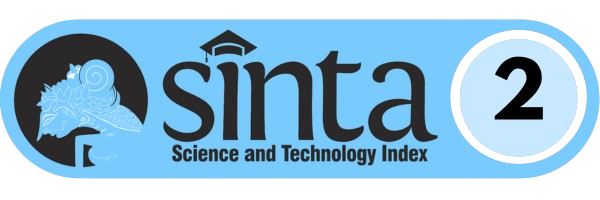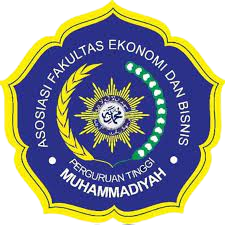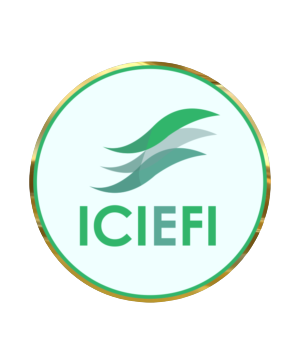Regional Macro Policies for People's Happiness
DOI:
https://doi.org/10.24269/ekuilibrium.v19i2.2024.pp172-184Abstract
Currently, the most complete measure of community welfare is the happiness index because this measure is based on community subjectivity. This study aims to determine the effect of per capita income, minimum wage, income inequality and gross enrollment rates on the Happiness Index in Indonesia. The research objects are 34 provinces in Indonesia. The data used are secondary data for 2014, 2017 and 2021. The data source is the Indonesian Central Bureau of Statistics. Using the panel data regression, the results show that per capita income, income inequality, minimum wage and gross enrollment rates together have a significant effect on the happiness index. and partially the per capita income variable has no significant positive effect on the happiness index while income inequality has no significant negative effect on the happiness index, conversely the minimum wage variable and gross enrollment rate have a significant positive effect on the happiness index in Indonesia. In order to increase the happiness index, it is recommended that the provincial government periodically review the minimum wage policy, increase the gross enrollment rate and increase per capita income and reduce income inequality.
References
Azhar, I. A. Ben. (2021). Determinan Indeks Kebahagiaan Di Indonesia. Jurnal Ekonomi Pembangunan Vol., 7(2), 127–141.
Badan Penelitian dan Pengembangan Kota Magelang. (2018). Analisis Indeks Kebahagiaan Kota Magelang 2018.
Bannister & Mourmouras. (2018). Welfare Versus GDP: What Makes People Better Off. IMF. https://www.imf.org/en/Blogs/Articles/2018/03/07/welfare-versus-gdp-what-makes-people-better-off
Behera, D. K., Rahut, D. B., Padmaja, M., & Dash, A. K. (2024). Socioeconomic determinants of happiness: Empirical evidence from developed and developing countries. Journal of Behavioral and Experimental Economics , 109(June 2023), 102187. https://doi.org/10.1016/j.socec.2024.102187
Blanchflower & Bryson. (2022). Wellbeing Rankings.
Central Bureau of statistics. (2017). Indeks Kebahagiaan Indonesia Tahun 2017. Berita Resmi Statistik, 1(16), 1-11. Biro Pusat Statistik.
Central Bureau of Statistics. (2015). Indeks Kebahagiaan Indonesia Tahun 2014.
Chen, W. chi. (2012). How Education Enhances Happiness: Comparison of Mediating Factors in Four East Asian Countries. Social Indicators Research, 106(1), 117–131. https://doi.org/10.1007/s11205-011-9798-5
Crisp, R. (2021). Well-being. Standford. https://plato.stanford.edu/cgi-bin/encyclopedia/archinfo.cgi?entry=well-being
Doyal & Gough. (1991). A Theory of Human Need. Guilford Press.
Easterlin, R. A., & Connor, K. J. O. (2020). The Easterlin Paradox. IZA – Institute of Labor Economics, 13923.
Easterlin, R. A., & O’Connor, K. J. (2020). Discussion Paper Series: The Easterlin Paradox. Institute of Labor Economics, IZA DP No.13923, 1–40. chrome-extension://efaidnbmnnnibpcajpcglclefindmkaj/https://docs.iza.org/dp13923.pdf
Festinger. (1954). A Theory of Social Comparison Processes: Human Relations. Hastings , N. A. J. , & Peacock , J. B.
Harumi, W., & Bachtiar, N. (2022). Potret Kebahagiaan Negara-Negara di Dunia Suatu Tinjauan Literatur. Bappenas Working Paper, V(2), 1–16.
He et al, . (2022). How Does Inequality Affect the Residents’ Subjective Well-Being: Inequality of Opportunity and Inequality of Effort. Frontiers and Phsychology, 13. https://www.frontiersin.org/articles/10.3389/fpsyg.2022.843854/full
Helliwell, J. (2006). Well-Being, Social Capital and Public Policy: What’s New? The Economic Journal, 115/610. https://www.jstor.org/stable/3590411
Helliwell, J., Layard, R., & Sachs, J. (2012). World Happiness REPORT.
Kumalasari & Wayan Murjana. (2020). Pengaruh Faktor-Faktor Yang Mempengaruhi Tingkat Kebahagiaan Negara Di Dunia. E-Jurnal Ekonomi Pembanunan Unud, 9, 963–992.
Landiyanto, E. A., Ling, J., Puspitasari, M., & Irianti, S. E. (2011). Wealth and Happiness: Empirical Evidence from Indonesia. Divmbmpohlpso Kpvsobm Pg Fdpopnjdt, 23, 1–17.
Latif, E. (2018). Does Income Inequality Impact Individual Happiness? Evidence from Canada. International Journal of Applied Economics, 15 (1). https://www2.southeastern.edu/orgs/ijae/index_files/IJAE MARCH 2018 LATIF APRIL-8-2018.pdf
Livingston, V., Jackson-Nevels, B., & Reddy, V. V. (2022). Social, Cultural, and Economic Determinants of Well-Being. Encyclopedia, 2(3), 1183–1199. https://doi.org/10.3390/encyclopedia2030079
Lucas and Schimmack. (2009). Income and well-being: How big is the gap between the rich and the poor? Journal of Research in Personality, 43. https://www.sciencedirect.com/science/article/abs/pii/S0092656608001396
Malia, R., & Hamzah, L. M. (2017). Analisis Komparasi Happiness Index Provinsi Di Pulau Sumatera.
OECD. (2019a). Better Life Index: Definition and Meta Data.
OECD. (2019b). The Economy of Well-being Creating opportunities for people’s well-being and economic growth. https://one.oecd.org/document/SDD/DOC(2019)2/En/pdf
Paliova, I., McNown, R., & Nülle, G. (2019). Multiple Dimensions of Human Development Index and Public Social Spending for Sustainable Development. IMF Working Papers, 19(204). https://doi.org/10.5089/9781513511924.001
Purwanti, Y. (2022). Pengaruh Faktor Pendidikan dan Ekonomi pada Indeks Kebahagiaan di Indonesia. Transformatif, XI(1), 1–13.
Rahayu, T. P., Atma, U., & Jakarta, J. (2016). Determinan kebahagiaan di indonesia. Jurnal Ekonomi Dan Bisnis, 19(1), 149–170.
Ross & Willigen. (1997). Education and the subjective quality of life. Health Soc Behav, 38/3. https://pubmed.ncbi.nlm.nih.gov/9343965/
Rözer, J. & K. (2013). Income Inequality and Subjective Well-being: A Cross-National Study on the Conditional Effects of Individual and National Characteristics. Social Indicators Research, 113 (3). https://link.springer.com/article/10.1007/s11205-012-0124-7
Stiglitz J. (2009). Report by the Commission on the Measurement of Economic Performance and Social Progress. SSRN Electronic Journal.
The World Happyness Indeks Report. (2021). Happyness Indeks Country Rankings. https://www.theglobaleconomy.com/rankings/happiness/Asia/
Ugur, Z. B. (2021). How does Inequality Hamper Subjective Well‑being? The Role of Fairness. Social Indicators Research, 158, 377–407. https://link.springer.com/article/10.1007/s11205-021-02711-w
Wahyudi, H., & Tiara, A. (2022). Ketimpangan Pendapatan Penyebab Tidak Bahagia. Jurnal Studi Pemerintahan Dan Akuntabilitas, 1(2), 125–138. https://doi.org/10.35912/jastaka.v1i2.1419
Yasir, J. R., Muang, M. S. K., & Sani, M. (2022). Analisis Dimensi Kepuasan Hidup terhadap Indeks Kebahagiaan Masyarakat di Kecamatan Bara Kota Palopo. JEMMA (Journal of Economic, Management and Accounting), 5(2), 182. https://doi.org/10.35914/jemma.v5i2.1332
Zhahira, K. B., & Utami, E. D. (2021). Faktor - Faktor Yang Mempengaruhi Tingkat Kebahagiaan Masyarakat Yogyakarta Tahun 2017. Seminar Nasional Official Statistics, 2021(1), 753–761. https://doi.org/10.34123/semnasoffstat.v2021i1.1029
Downloads
Published
How to Cite
Issue
Section
License
Retained Rights/Terms and Conditions of Publication
1. As an author you (or your employer or institution) may do the following:
- make copies (print or electronic) of the article for your own personal use, including for your own classroom teaching use;
- make copies and distribute such copies (including through e-mail) of the article to research colleagues, for the personal use by such colleagues (but not commercially or systematically, e.g. via an e-mail list or list server);
- present the article at a meeting or conference and to distribute copies of the article to the delegates attending such meeting;
- for your employer, if the article is a ‘work for hire’, made within the scope of your employment, your employer may use all or part of the information in the article for other intra-company use (e.g. training);
- retain patent and trademark rights and rights to any process, procedure, or article of manufacture described in the article;
- include the article in full or in part in a thesis or dissertation (provided that this is not to be published commercially);
- use the article or any part thereof in a printed compilation of your works, such as collected writings or lecture notes (subsequent to publication of the article in the journal); and prepare other derivative works, to extend the article into book-length form, or to otherwise re-use portions or excerpts in other works, with full acknowledgement of its original publication in the journal;
- may reproduce or authorize others to reproduce the article, material extracted from the article, or derivative works for the author's personal use or for company use, provided that the source and the copyright notice are indicated, the copies are not used in any way that implies RCEPM-LIPI endorsement of a product or service of any employer, and the copies themselves are not offered for sale.
All copies, print or electronic, or other use of the paper or article must include the appropriate bibliographic citation for the article's publication in the journal.
2. Requests from third parties
Although authors are permitted to re-use all or portions of the article in other works, this does not include granting third-party requests for reprinting, republishing, or other types of re-use. Requests for all uses not included above, including the authorization of third parties to reproduce or otherwise use all or part of the article.
3. Author Online Use
- Personal Servers. Authors and/or their employers shall have the right to post the accepted version of articles pre-print version of the article, or revised personal version of the final text of the article (to reflect changes made in the peer review and editing process) on their own personal servers or the servers of their institutions or employers without permission from Universitas Muhamamdiyah Ponorogo, provided that the posted version includes a prominently displayed Universitas Muhamamdiyah Ponorogo copyright notice and, when published, a full citation to the original publication, including a link to the article abstract in the journal homepage. Authors shall not post the final, published versions of their papers;
- Classroom or Internal Training Use. An author is expressly permitted to post any portion of the accepted version of his/her own articles on the author's personal web site or the servers of the author's institution or company in connection with the author's teaching, training, or work responsibilities, provided that the appropriate copyright, credit, and reuse notices appear prominently with the posted material. Examples of permitted uses are lecture materials, course packs, e-reserves, conference presentations, or in-house training courses;
- Electronic Preprints. Before submitting an article to an Ekuilibrium: Jurnal Ilmiah Bidang Ilmu Ekonomi, authors frequently post their manuscripts to their own web site, their employer's site, or to another server that invites constructive comment from colleagues. Upon submission of an article to Ekuilibrium: Jurnal Ilmiah Bidang Ilmu Ekonomi, an author is required to transfer copyright in the article to Economy Faculty Universitas Muhammadiyah Ponorogo, and the author must update any previously posted version of the article with a prominently displayed Economy Faculty Universitas Muhammadiyah Ponorogo copyright notice. Upon publication of an article by the Universitas Muhammadiyah Ponorogo, the author must replace any previously posted electronic versions of the article with either (1) the full citation to the work with a Digital Object Identifier (DOI) or link to the article abstract in Ekuilibrium: Jurnal Ilmiah Bidang Ilmu Ekonomi journal homepage, or (2) the accepted version only (not the final, published version), including the Economy Faculty Universitas Muhammadiyah Ponorogo copyright notice and full citation, with a link to the final, published article in journal homepage.
4. Articles in Press (AiP) service
Economy Faculty Universitas Muhammadiyah Ponorogo may choose to publish an abstract or portions of the paper before we publish it in the journal. Please contact our Production department immediately if you do not want us to make any such prior publication for any reason, including disclosure of a patentable invention.
5. Author/Employer Rights
If you are employed and prepared the article on a subject within the scope of your employment, the copyright in the article belongs to your employer as a work-for-hire. In that case, Economy Faculty Universitas Muhammadiyah Ponorogo assumes that when you sign this Form, you are authorized to do so by your employer and that your employer has consented to the transfer of copyright, to the representation and warranty of publication rights, and to all other terms and conditions of this Form. If such authorization and consent has not been given to you, an authorized representative of your employer should sign this Form as the Author.
6. RCEPM-LIPI Copyright Ownership
It is the formal policy of Economy Faculty Universitas Muhammadiyah Ponorogo to own the copyrights to all copyrightable material in its technical publications and to the individual contributions contained therein, in order to protect the interests of the Economy Faculty Universitas Muhammadiyah Ponorogo, its authors and their employers, and, at the same time, to facilitate the appropriate re-use of this material by others. Economy Faculty Universitas Muhammadiyah Ponorogo distributes its technical publications throughout the world and does so by various means such as hard copy, microfiche, microfilm, and electronic media. It also abstracts and may translate its publications, and articles contained therein, for inclusion in various compendiums, collective works, databases and similar publication.
7. Licensing Terms
Ekuilibrium is licensed under a Creative Commons Attribution-ShareAlike 4.0 International License.
Permissions beyond the scope of this license may be available at https://journal.umpo.ac.id/











